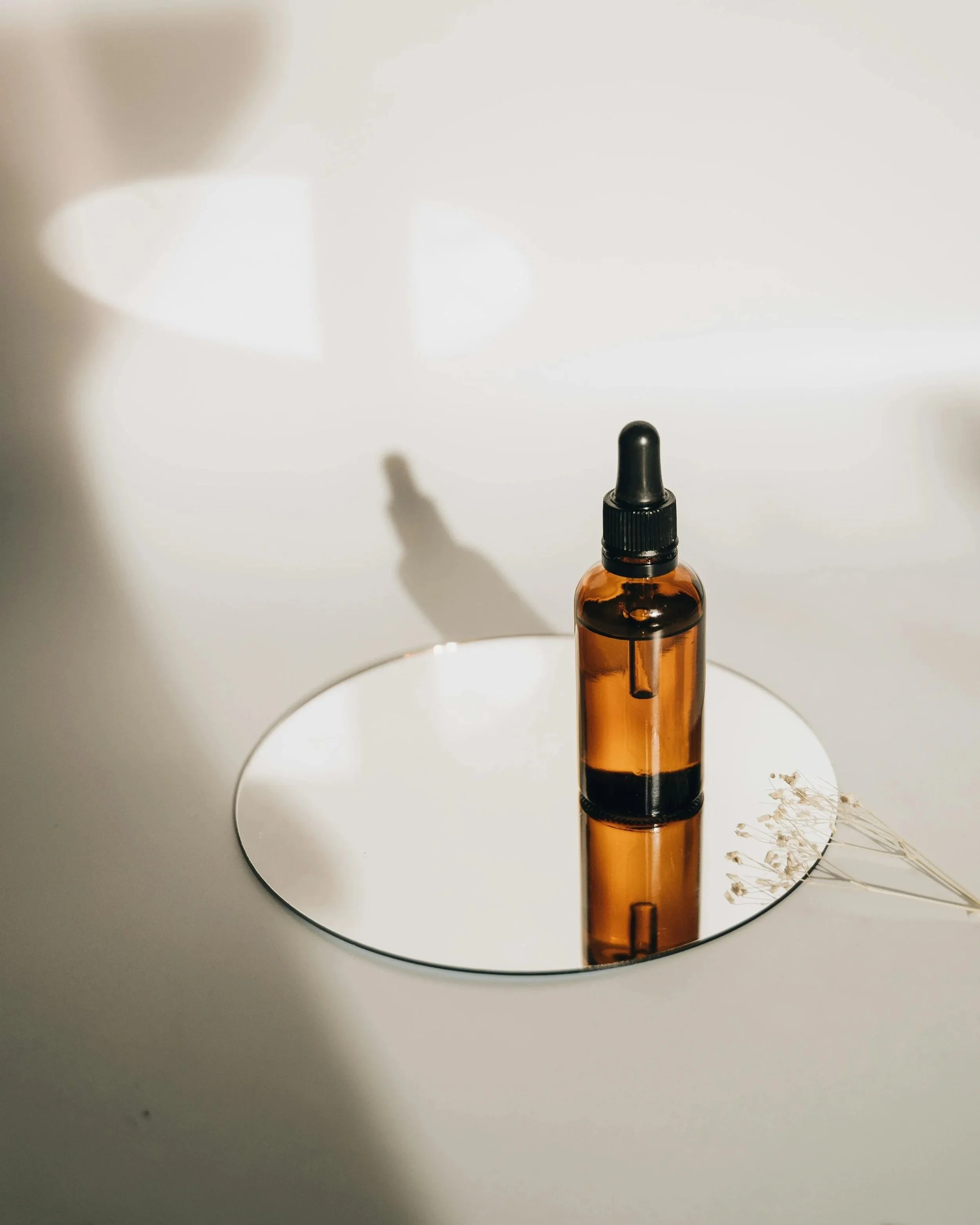Skincare Business Fails to Learn From
We all make mistakes – in business, relationships and everyday life. And that’s okay. What truly matters is how we respond to those mistakes: how we learn, adapt and move forward. The same goes for skincare businesses.
The truth is, a lot of skincare brands struggle with the same common mistakes. The difference between a thriving business and a failing one often lies in how those issues are handled. You might wonder – how easy is it to even fail a skincare business? The answer is – it's easier than you think. One wrong decision can quickly lead to another, setting off a domino effect of problems that can critically damage your brand’s ability to survive or grow.
In 2025, the global skincare market is valued at over $198 billion, with thousands of indie and emerging brands entering the market each year. Yet approximately 20% of small skincare businesses fail within their first year. And it is often due to skincare business mistakes like brand confusion, only trend-driven strategies, rebrands that erase customer trust, unclear message in skincare product descriptions and others.
The good news? You don’t have to make all the mistakes yourself when starting a skincare business. While we often learn best from our own failures, in the skincare industry it’s crucial to learn from other brands. Understanding what went wrong for others can help you avoid the same costly missteps and give your brand a much better chance at success.
So let's dive into some of the biggest skincare business fails so you can avoid the same fate.
Table of Contents
Skincare industry’s biggest mistakes: And what you can learn from them
Learn some valuable insights from skincare business fails you can use to build smarter, more resilient strategies for your own brand.
1. Glossier Play: Launching a beauty brand without personality
Source: Pinterest
If your new product line doesn't have a clear reason to exist – or even worse, doesn’t feel like you – customers will put their finger on it pretty fast. That’s exactly what happened with Glossier Play.
Launched in 2019, Glossier Play was supposed to be the bold and playful side of Glossier’s minimalist skincare world. But instead of giving the customers something exciting, it left them scratching their heads. Why launch a whole new sub-brand to sell products Glossier was already known for? That's what everyone had in their minds. Sure, the brand colors were brighter, but the products weren’t innovative and the vibe felt totally off-brand.
Customers couldn’t connect to this new brand personality. And within a year, Glossier quietly shut the line down.
So here's what to learn – launching a skincare line with a clear brand identity is crucial. A launch without personality or a strong purpose will most likely fall flat. Don’t confuse your target audience with extra private label products that don’t add value. Always make sure to ask – what makes this brand and these products different, and why should anyone care? Make it clear what you stand for and be sure to share it with your customers every step of the way.
2. REN Clean Skincare: When innovation stalls, so does success
Source: Pinterest
Even a skincare brand that has all the right ingredients to become a global household name can still fall behind and ultimately fade out. That’s the story of REN Clean Skincare, which recently shocked the skincare industry. A brand that once was a clean beauty pioneer known for being free from harsh chemicals and supporting sustainability – before it became industry standard – was announced to shut down in 2025.
Founded in the UK in 2000, REN was widely respected and loved. In 2015, it was acquired by Unilever and poised for global expansion. However this year will be the end of its story.
So what happened? As newer brands entered the market with more innovative formulas, clearer messaging and tighter community engagement, REN failed to evolve. Its original clean concept that once was revolutionary became ordinary. Product innovation slowed, marketing felt outdated and the brand’s relevance diminished.
What can you do to avoid the same outcome? Your brand needs to fight for relevance every single day. No matter how pure your ingredients or how beautiful your packaging is, none of it matters if your customers stop caring. Stay close to your community and make sure your products continuously solve real, current problems customers face.
3. Drunk Elephant’s European misstep: Target market lost in translation
Source: Pinterest
Just because your brand language works in one country doesn’t mean it will make sense or sell products somewhere else. That’s the hard truth even a consumer-loved brand like Drunk Elephant had to learn when it expanded into Europe.
After skyrocketing to success in the U.S. with its minimalist branding and "clean-compatible" formulas, Drunk Elephant entered the European market expecting similar traction. But European consumers, especially in markets like France and Germany, weren’t won over by vague "clean beauty" promises. The EU already bans many of the ingredients Drunk Elephant warns about.
If you're building a skincare brand with dreams of international growth, whether you're selling high-end formulas or private label skincare, know that global expansion demands local insight. Before entering a new market, understand how skincare is regulated, discussed and emotionally received. If the language, values or pricing don’t fit, your product won’t either.
4. H2O+ Beauty: How losing your roots can sink your business
Source: Pinterest
Source: Pinterest
Refreshing your brand can breathe new life into your business – or it can completely wipe out everything that made it work. H2O+ Beauty learned this the hard way.
Originally launched in 1989, the brand became popular for its marine-based skincare and spa-like aesthetic. But later on, H2O+ attempted a full rebrand. It shifted the brand’s identity, abandoned its core roots and chased the essential millennial clean beauty trend. The result? It lost its loyal customer base and failed to capture a new one.
So don't try to just appear cooler. Make your brand more relevant while preserving what people already love. Evolve, but don’t erase.
If you’re thinking about repositioning or modernizing your skincare brand, tread carefully. Don’t discard the very things your current customers already love you for. The goal of evolving your brand should be to build on what’s working – not to start from scratch.
You can ask yourself:
Are you evolving or starting over?
Are your core values and product strengths still clear?
Will your existing customers still feel like this brand is for them?
If not, you could lose everything you’ve worked hard to build in the process of trying to look more trendy.
5. Kylie Skin: Celebrity hype isn’t a long-term strategy in the beauty industry
Source: Pinterest
Hype can sell at first, but it won’t build a lasting skincare brand. Especially in today's beauty industry. Customers are always looking for more – they want real results, trustworthy ingredients and a brand they can believe in.
Kylie Jenner’s skincare line, Kylie Skin, drew massive attention when it launched in 2019. Backed by Kylie Cosmetics and a global celebrity following, it went on to early success. The brand had a bold marketing strategy, but over time customers questioned if the skincare line, product quality and formulas lived up to the hype. For many, it felt like Kylie Skin was more about branding than actual skin benefits and problem-solving. It looked good on Instagram but didn’t deliver the kind of credibility skincare customers were craving.
Eventually, the hype faded. Kylie Skin ended up feeling more like celebrity merch than a serious skincare brand – without a clear focus on real skin concerns or science-backed innovation.
So if you're an aspiring skincare entrepreneur or trying to grow your skincare brand, this is your reminder – hype is temporary, but real value lasts. Customers nowadays are smart and selective. They want products that solve real problems, backed by ingredients and results they can trust.
In the long run, focus on building a brand with meaning, not just marketing. And make sure your value is clear at every touchpoint. Be different, be credible and give people a reason to stick around long after launch day.
Real life lessons for skincare entrepreneurs
If you’re a skincare business owner in the early stages or if you’ve hit that "why isn’t this working for my brand?" wall – this is for you. Whether you’re still planning your first launch or struggling to connect with your audience, these lessons can help you skip the mistakes and focus on what actually drives sales.
Every failed brand we covered in this blog offers a clear point of view – your success depends on how well you connect with your potential customers, how clearly you define your brand’s value, and how strong your emotional connection is with your audience.
So here’s a simple breakdown of key lessons: what to avoid and what to do instead to build a brand that lasts.
What to avoid:
Not sticking to your brand’s core message;
Failing to innovate or adapt as the market changes;
Expanding without cultural insight;
Letting trends be in charge of your product strategy;
Rebranding without protecting your identity.
What to do Instead:
Build your brand around solving a real and specific problem your potential customer struggles with;
Stay close to your audience and lead it with a clear vision;
Evolve – strategically, not reactively;
If you grow, make sure your brand story translates globally;
Protect the emotional connection that drew your first customers in;
Focus on value, performance, and loyalty.
Learn it the smart way: Let others failures guide your success
Building a skincare brand is tough. There’s pressure to be everywhere, say the right things, go viral, look great and drive sales. It’s a lot. So how to start a skincare brand? By learning from the mistakes of others.
Every failed brand in this blog left behind something valuable – an example, a wake-up call, a lesson that can save you time, money and stress. So take notes. Get inspired. Be honest about what’s working and what’s not.
And remember – you don’t have to be perfect. You just have to keep growing and learning!
Frequently Asked Questions
-
The most common mistake is launching a brand without a clear, unique identity. As seen with Glossier Play, if a new line doesn't have a strong purpose or personality that resonates with customers, it will likely fail. Hype alone is not enough; your brand must have a core message and value proposition that makes it stand out and solve a real problem for its target audience.
-
The skincare industry evolves quickly, and brands must continuously innovate to remain successful. As the case of REN Clean Skincare shows, a brand that rests on its reputation can fade into irrelevance when newer, more agile competitors emerge. Staying relevant means constantly evolving your formulas, marketing, and messaging to meet your customers' changing needs and expectations.
-
The biggest lesson is to evolve without erasing what made your brand special. H2O+ Beauty is a prime example of a brand that lost its loyal customer base by abandoning its core identity to chase a trend. When considering a rebrand, you should build on your existing strengths rather than starting from scratch. Always ask if your existing customers will still recognize and connect with your brand after the changes.
Must read













